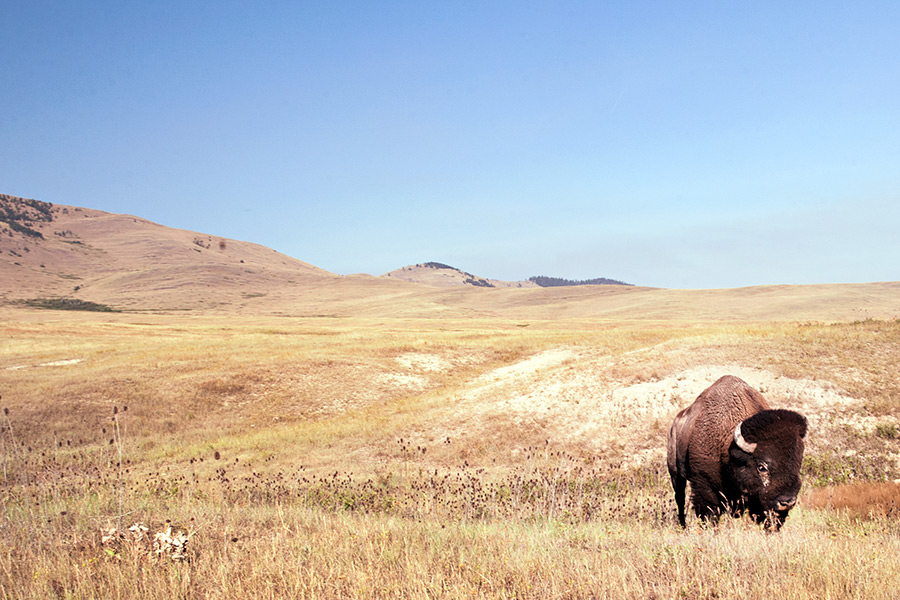The Confederated Salish and Kootenai Tribes’ 20-year effort to co-manage the reservation-based National Bison Range moved forward again this month as a long-awaited study was released for public comment.
On Aug. 4, the U.S. Fish and Wildlife Service released a draft environmental assessment of the proposed tribal-federal partnership for operations of the National Bison Range Complex (NBRC). The partnership is authorized under the United States’ Tribal Self-Governance Act. The NBRC is part of the National Wildlife Refuge System, which is administered by the FWS.
The draft environmental assessment was released for a 30-day public comment period. It analyzes the proposed agreement between the FWS and the Tribes, as well as several alternatives. After reviewing public comment, the FWS will finalize the assessment, and if no further analysis is found to be necessary the agency will decide whether to approve the proposed agreement.
“The National Bison Range occupies a special place not only within the Flathead Indian Reservation, but also within the history and culture of the tribes,” Tribal Chairman Ronald Trahan said. “The Bison Range Complex also includes two refuges that are located on tribally owned land. The Ninepipe and Pablo Refuges are operated by the Fish and Wildlife Service under an easement granted by the Tribes. Regardless of how you approach the issue, partnering with the Tribes makes sense.”
This would mark the third self-governance agreement at the NBRC. The first agreement was canceled by the FWS in 2006. The cancellation was then contested by the tribes, resulting in a second agreement that was signed by Interior Secretary Dirk Kempthorne in 2008. That agreement was later rescinded by a federal court on procedural grounds, with the court finding that the FWS had not adequately explained its invocation of a categorical exclusion under the National Environmental Policy Act when it had approved the 2008 agreement.
The recent draft environmental assessment aims to provide a fuller analysis for the FWS decision regarding the new agreement it has negotiated with the tribes.
In response to allegations from groups who have long opposed the bison range partnership, the Interior Office of Inspector General investigated the claims and found them to be without merit.
“The National Bison Range Complex includes important parts of the Flathead Indian Reservation ecosystem,” said Tom McDonald, manager of CSKT’s Fish, Wildlife, Recreation Conservation Division. “We look forward to once again working closely with the Fish and Wildlife Service under a Tribal Self-Governance agreement.”
